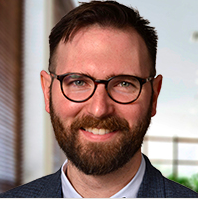
Blogger:
Avraham Z. Cooper, MD
Twitter: @CooperAvraham
About the blogger:
Avraham Z. Cooper is a Pulmonary/Critical Care fellow at The Ohio State University. His research and academic interests include optimizing learning environments in clinical settings, transitions in training, and medical humanities.
Citation:
Gail M. Sullivan (2018) A Toolkit for Medical Education Scholarship. Journal of Graduate Medical Education: February 2018, Vol. 10, No. 1, pp. 1-5.
Link: http://www.jgme.org/doi/full/10.4300/JGME-D-17-00974.1?code=gmed-site
Why this paper?
This is an editorial by the Editor-in-Chief of the Journal of Graduate Medical Education (JGME). It offers invaluable, practical advice to clinician educators interested in starting to pursue scholarship in medical education. As criteria for promotion for clinician educators more and more include research output, and the job description becomes “clinician educator scholar”, there is an expectation for consistent, high-level publication. This expectation coexists with the reality that many clinician educators do not have formal research training, well-honed writing and literature evaluation skills, or a robust mentorship and scholarly support network. Dr. Sullivan presents a toolkit for how to begin to become a medical education research scholar. She offers a helpful framework for project selection and planning (using Glassick’s criteria for scholarship), troubleshooting early career and project roadblocks, building mentorship networks, finding accessible publication and skill-building opportunities (such as writing review articles or serving as a reviewer for a medical education journal), and accessing resources for personal development (such as the Medical Education Research Certificate offered by the AAMC).
This editorial offers crucial guidance for clinician educators embarking on the scholarly portion of their careers, or for those who are not progressing as they would desire. For example, anticipating potential pitfalls in advance, such as troubleshooting a lack of collaborators or funding, can help accelerate the early stages of research that might have been gummed up if such issues eventually unexpectedly arise. This concise and user-friendly toolkit is particularly useful for those who do not have easy access to a mentorship network that would otherwise provide such practical advice.



